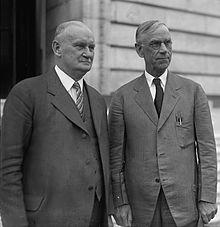What Finland Can Teach the West About Countering Russia’s Hybrid Threats
by Mackenzie Weinger in World Politics Review, Tuesday, Feb. 13, 2018
…
These Finnish efforts have even had some success. “The Finns know that they’re reasonably good at this,” says Jed Willard, director of the Franklin Delano Roosevelt Center for Global Engagement [sic] at Harvard University. “Because they have a long border and long history with Russia, they know instinctively how to deal with any sort of interference coming from the east. Because of that confidence, they were on board with tackling this problem pretty quickly.”
During a visit to Helsinki last November, U.S. Secretary of Defense James Mattis offered an enthusiastic endorsement of the Hybrid CoE, saying it would be highly valuable as the U.S. and its allies work together to understand a new world in which hybrid threats are proliferating. “Here in this Helsinki center, the shared concerns of our transatlantic democracies can be researched and addressed in a collaborative manner, each of us learning from the other and building resistance to those with malign intent toward our democracies,” he said. “With this center, Finland has created an institution fit for our time.”
While many Western governments only recently woke up to the threat posed by Russia’s newer hybrid warfare tools, Finland has spent years trying to render them ineffective.
On the other side of the two countries’ shared 833-mile border, Russian operatives also seemed to recognize the center’s potential—and immediately tried to disrupt it. Even before the Hybrid CoE officially began its work, it had a target on its back. A website with a Russian “.ru” domain was quickly created for “The Helsinki Center of Excellence for Countering Hybrid Threats,” an obvious imitation of the Hybrid CoE. When the Hybrid CoE debuted its logo—a simple arrangement of nine blue and red dots—this Russian website posted a similar one featuring a Finnish coat of arms. The contents of the imposter website included a pamphlet titled, “EU’s Infowar on Russia: Putting in Place a Totalitarian Media Regime and Speech Control.”
The Hybrid CoE’s leadership was unfazed by the knock-off. To the contrary, says Juha Mustonen, the center’s director of international relations, “That was somehow poetic justification for the center’s existence, that as soon as it was established there was a fake one.”
…
Read the rest of Mackenzie’s piece at World Politics Review and check out the Hybrid CoE here!
Liberal Democracy Doesn’t Fall from the Sky
The Disinformation Vaccination
By Nina Jankowicz, in “The Wilson Quarterly”
The most illuminating conversations I’ve had about Russian disinformation have not been with ex-Cold Warriors, Russia hands, or government officials. They have been with the people that – according to many of those I just listed – are purveyors of disinformation themselves.
“I don’t believe in fighting [against] information. That’s what the communists did,” Jaroslav Plesl, the editor-in-chief of Dnes, the Czech Republic’s second-largest daily newspaper, told me in January 2017, just after the Czech government unveiled a new center to fight terrorism and so-called “hybrid threats,” including disinformation.
I caught a lot of flak for publishing a quote from that conversation in an editorial on how to fight fake news. A Czech friend in the anti-disinformation field told me that while he didn’t think Plesl was on the Kremlin payroll, he might as well be, given all he and his publication do to amplify the Russian state’s narratives.
My friend won’t be happy to find out that on my last trip to Prague, I met with an editor at Parlamentní Listy, one of the most popular fringe media outlets in the country. It is often accused of having Kremlin ties. Whether or not that’s true, Jan Rychetský, the editor with whom I spoke, described his employer’s strategy very simply: “We try to speak to the people that no one from the mainstream media speaks to.” …
Read the rest of Nina Jankowicz’ piece in “The Wilson Quarterly,” here:
https://www.wilsonquarterly.com/quarterly/the-disinformation-age/the-disinformation-vaccination/
Taiwan Versus the Beijing Narrative
As a European in Taiwan, I came to understand why the conflict of Taiwan is often misunderstood in the West. The knowledge about the civil war between the Kuomintang and Communists, resulting in the retreat of Chiang Kai-shek and his troops to the island, is not widely known. The implications of the term “One China,“ therefore, leaves many Westerners clueless. When Chinese President Xi Jinping deals with the island as if it were a defecting province, as he did at the 19th Communist Party Congress this week, he sounded somewhat legitimate.
Surely, Western governments are aware of the complicated situation and the pending threat, but they may feel that their hands are tied. Europe has always looked to the United States of America when it came to supporting Taiwan. Now, with declining support for the values of liberal democracy across the Old World in recent years, as evidenced by the Brexit vote and the rise of far-right xenophobic movements, little compassion is left for a far-away country such as restricted Taiwan. The stance that US President Trump takes on the issue is still unclear.
Prior to the National Day on October 10th, an article was widely shared and discussed on social media. The text claimed that the Chinese military would finally meet the necessities to invade Taiwan by the year 2020. Observers, however, would argue that the Mainland’s military would neither dare nor have the capacity to invade and long-term occupy Taiwan. Alas, that doesn’t mean Taiwan will not see some serious infringement on its liberal democracy.
For Beijing, Taiwan is a threat because the leader of the Communist Party sells the idea to his followers and the West alike that being Chinese and simultaneously a liberal democrat is impossible: the tradition of Confucianism can only live on in the form of the one-party state. Mr Xi Jinping’s fight against corruption and moral misconduct needs to be seen as him catering to the narrative that he has deployed during his first term as president of the People’s Republic of China: emerging to the very top is only possible by applying the highest ethical standards
In the West, where democracy is typically deliberately limited by the rights of individuals or specific groups such as minorities, leaders do not cease to praise the Chinese president (and leaders before him) as visionary, innovative, and thoughtful. What they mean is that, due to the autocratic one-party rule, Beijing is capable of following through with policy ideas – such as tackling climate change – that would take years in a democratic framework.
The existence of Taiwan, however, reminds Mr. Xi Jinping and the West of the existence of a democracy in a Confucian context. As a matter of fact, Taiwan is not the only liberal democracy of the region. It has potentially powerful allies in South Korea and Japan. All three are allies of the United States, and all three have a similar set of interests when it comes to fighting off a power-hungry China.
Yet, for historic reasons, the three have not elaborated on their common policies. And it is doubtful that they will do so anytime soon. Beijing is anything but sad about the disagreements of its democratic rivals across the Sea. In Taipei, Seoul, and Tokyo observers may already be nervous when they anticipate Donald Trump’s visit to China in a few weeks. The US president seems to have been marveling autocratic rulership.
One can only hope that the result of the meeting between these two power-hungry men of dubious mindset and character when it comes to civil liberties and liberal freedoms will not be frightening the three truly democratic countries in the region. As for Taiwan, the leadership and the people should be eagerly trying to strengthen their ties with Western allies and the liberal democracies in South Korea and Japan. For China may not be able or willing to invade the country, but it will also not tolerate any further development of a free and independent society for this may, in the logic of Beijing, inevitably lead onto the street of independence.
E3 Conference 9/20
 Early in his first term of office, Franklin Delano Roosevelt moved to dismantle the disastrous Smoot-Hawley Act, a protectionist measure of 1930 which severely curtailed world trade and worsened the Great Depression. Almost throughout his presidency, FDR encouraged the reduction of trade barriers and the negotiation of a rules-based global economic system.
Early in his first term of office, Franklin Delano Roosevelt moved to dismantle the disastrous Smoot-Hawley Act, a protectionist measure of 1930 which severely curtailed world trade and worsened the Great Depression. Almost throughout his presidency, FDR encouraged the reduction of trade barriers and the negotiation of a rules-based global economic system.
Unfortunately, the same protectionist urges that drove Smoot and Hawley have re-emerged on both the political Left and Right in 21st-century America. These trends, along with the revival of the anti-FDR, isolationist “America First” slogan, run contrary to – among other things – the interests of American business enterprises. The FDR Foundation is therefore pleased to co-sponsor the Boston E3 Conference on Harvard’s campus on September 20, 2017.
E3 conferences connect entrepreneurs and small to medium-sized businesses (SMEs) with global markets. E3 events are designed to provide SMEs with an intimate, in-depth opportunity to gain insights needed to navigate global growth, and engage with US and foreign trade officials. Topics include new markets, international trade policy, legal and tax implications of international business, growth industries in specific regions, etc.
Details on E3 Boston can be found here. We are grateful to the E3 team for making conference internships available to current students from any Harvard school who wish to participate. Interested students should contact Adrienne Palmer. Current Harvard College students may also apply to attend the conference as official guests of E3. These undergraduate guest postings are extremely limited; interested students should contact Jed Willard.

